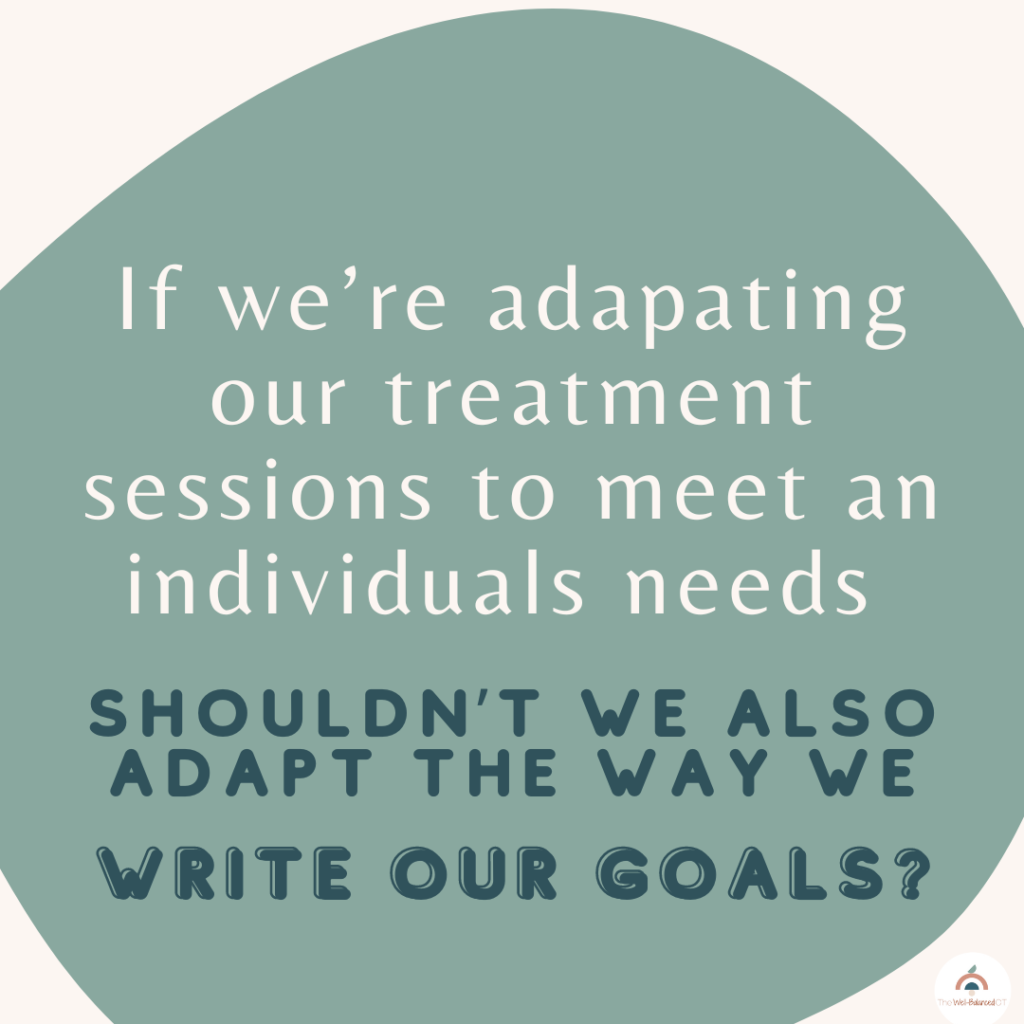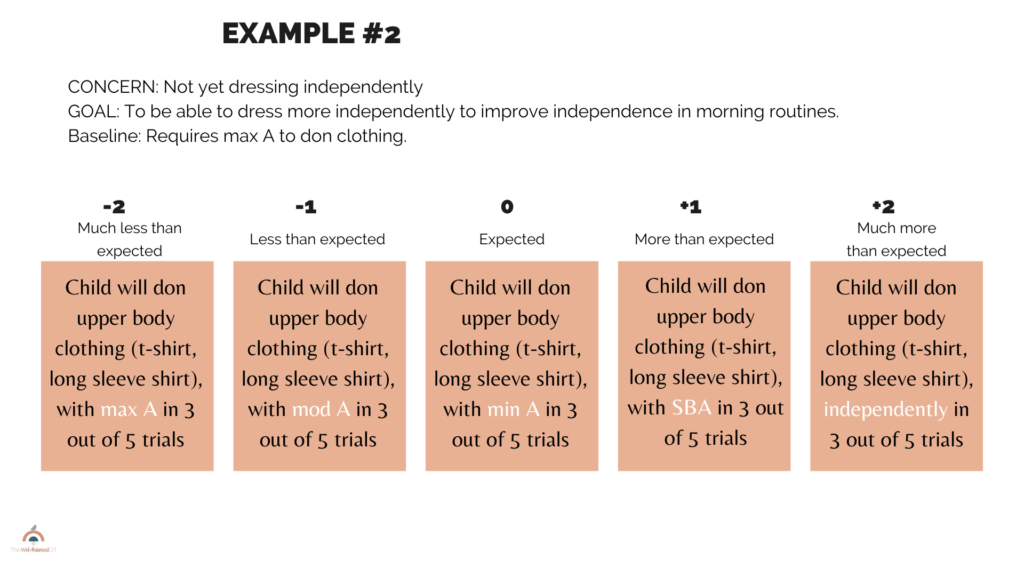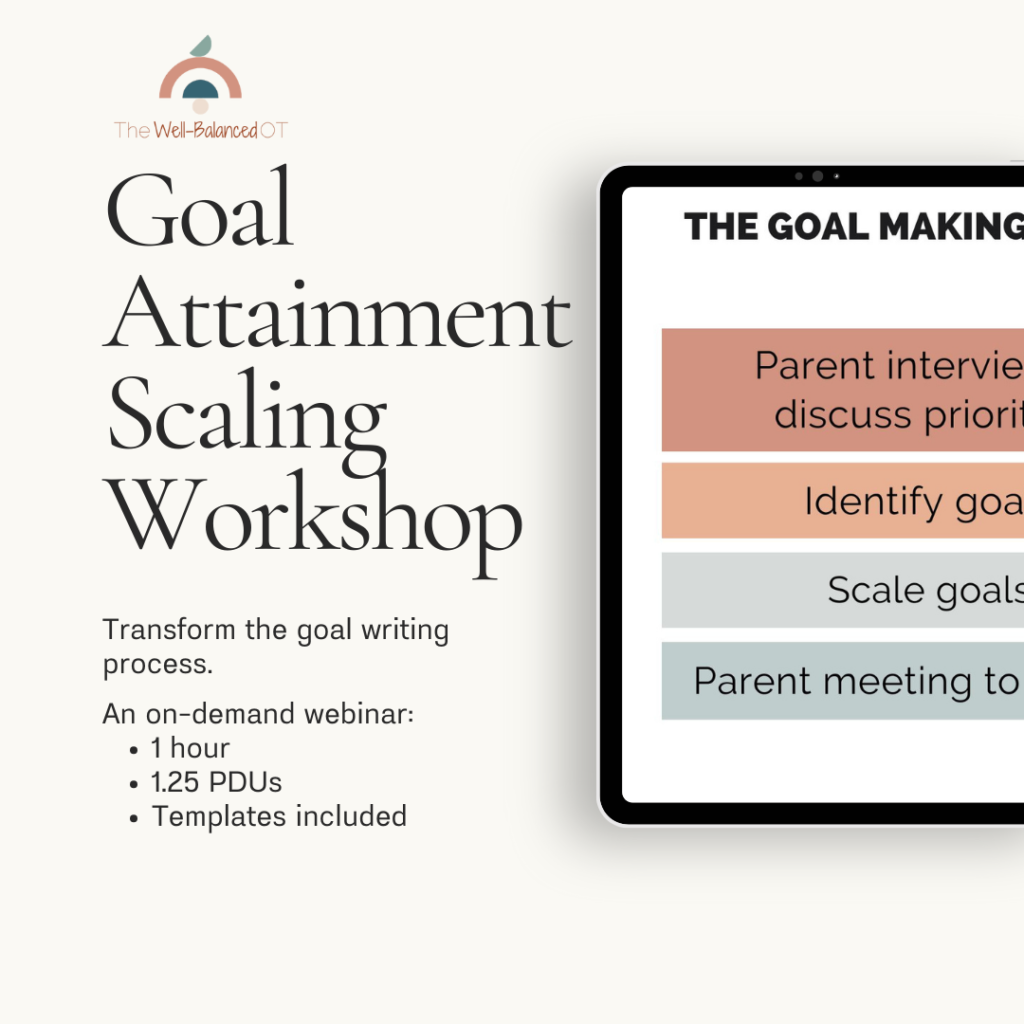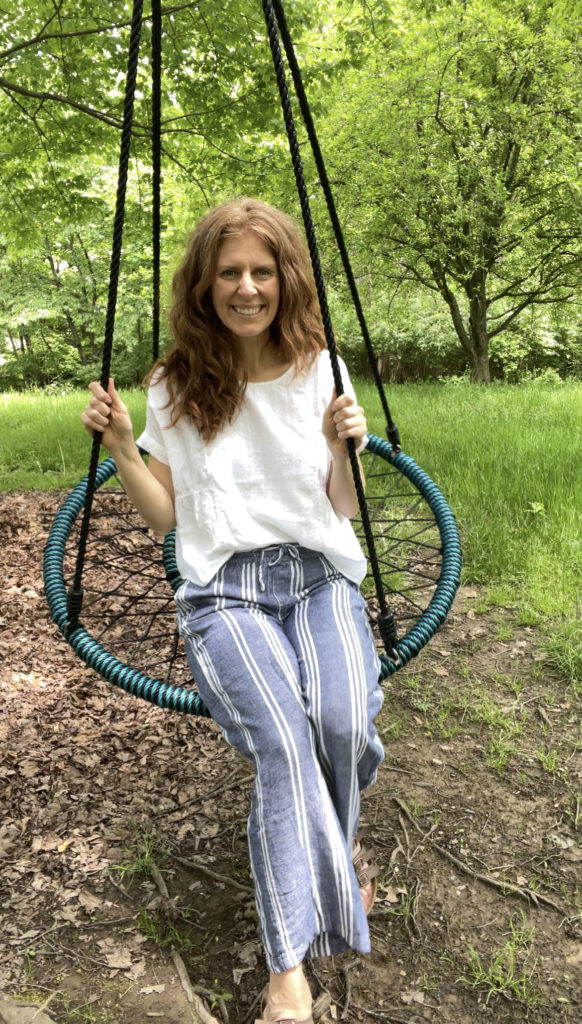Goal Attainment Scaling Workshop
1 contact hour with a quiz • CEUs available • 4 month access
Cost: $45
A one-hour, on-demand workshop that explores a more neurodiversity-affirming approach to goal writing.

Welcome to our webinar on using Goal Attainment Scaling (GAS) in therapy! Our self-paced course is designed to provide therapists with a comprehensive understanding of how to effectively use GAS in their practice. Goal Attainment Scaling is a client and family-centered approach that allows therapists to collaboratively set meaningful and achievable goals with their clients, track progress, and evaluate outcomes.

I created this webinar because I felt like we could do more for our clients when it comes to goal writing.
We are adapting our treatment strategies and approaches, our means of assessment, and the vocabulary that we use to be more neurodiversity affirming but we ARE STILL USING THE SAME GOAL-WRITING APPROACH.
In some cases, this goal-writing approach works just fine. In others, it’s not serving as it should. Typically, these goals are very black and white. They tell us if the client met the goal or not.
But what happens when the child has made progress on the goal but didn’t quite meet the expectation? We want to celebrate that achievement and show how progress has been made, but can’t always do that with our typical goal-writing approach.
You’ll love that using Goal Attainment Scaling can:
- Provide flexibility
- Offer a neurodiversity-affirming approach to goal writing
- Make it easy to measure progress
- Be used as both a goal writing tool and outcome measure
- Be more sensitive to functional goals that can’t often be assessed by standardized measures

How is Goal Attainment Scaling Different?
Instead of just a single goal, we scale that goal into 5 levels so that we can better measure small increments of change.
It gives us a quantitative value that allows us to compare progress without using a standardized measure. This is especially helpful when looking at goals related to regulation, ADLS, and other family-centered goals that are not commonly addressed in standardized assessments

During this webinar, participants will learn:
- The key principles of GAS
- How to involve the clients and families in the goal-setting process
- How to establish measurable criteria for goal achievement
- How to scale goals appropriately
2 case studies will be shared to offer you practice in identifying and writing neurodiversity-affirming goals using GAS. This is a workshop, so you can submit your goal scales for feedback.

Who is this webinar is for?
Pediatric therapists (OT, SLP, PTs, Social Workers, etc) or therapy students who want to find new ways to write goals that are neurodiveristy-affirming and family centered.
Please keep in mind that the goal areas discussed in the webinar are using OT goals, but will you give you a great understanding of how to scale your own speech or PT related goals using the same formula.


What's included:
- A 1-hour on-demand webinar
- 4 months of access to the webinar and resources
- Opportunity to submit workshop goals for feedback
- Certificate of Completion for 1 hour
- This will be provided after the completion of the quiz and survey
- It will count for 1.25 PDUs for NBCOT
- .1 CEU. Please check with your state as requirements may differ.
- Resources
- GAS templates
- Data collection and analysis worksheets

Q+A
This self-paced workshop is available on-demand, meaning after you purchase, you can take the course whenever fits with your schedule.
They really are the same thing – both are units towards your license/certification, but they are different units of measurement.
- 1 contact hour = 1 PDU or .1 CEU
- 1 contact hour with an assessment = 1.25 PDUs for NBCOT
- 1 PDU = .1 CEU
These units can be applied to your state license and NBCOT. If you are not an OT please check your professional requirements.
For this course, you will earn 1.25 PDUS for NBCOT (because there is an assessment), or .1 CEU
This course was designed for Occupational Therapists but could be valuable for all therapists who want to learn more about incorporating GAS into their practice.
This course would not be as valuable for parents, as this focuses on creating therapeutic goals.
This workshop offers the time and opportunity to devise your own goals, practice scaling them, and get feedback.
While you’re watching, you have the opportunity to post your proposed goals or questions on the platform and I’ll send you feedback or answer any questions you may have.
You’ll have access for 4 months from the purchase date. You must complete the course within that time frame to get the certificate.
At this time I do not offer refunds.
$38 USD


About your host
I’m Katie, a pediatric Occupational Therapist and founder of The Well-Balanced OT, an educational platform for therapists and anyone else who wants to support the children in their lives.
I offer mentorship groups and individual sessions, printable resources, and educational webinars to expand your confidence, knowledge, and therapeutic skills.
You can learn more about my experience and education here.
I currently live in Cleveland with my husband, a ton of house plants, and a closet full of crafts.


Are you ready for a new approach to goal writing?
At only $45 USD this course is packed with info to help support your transition to using goal attainment scaling in your practice!
After sign up, please allow up to 12 hours prior to receiving access to the workshop
